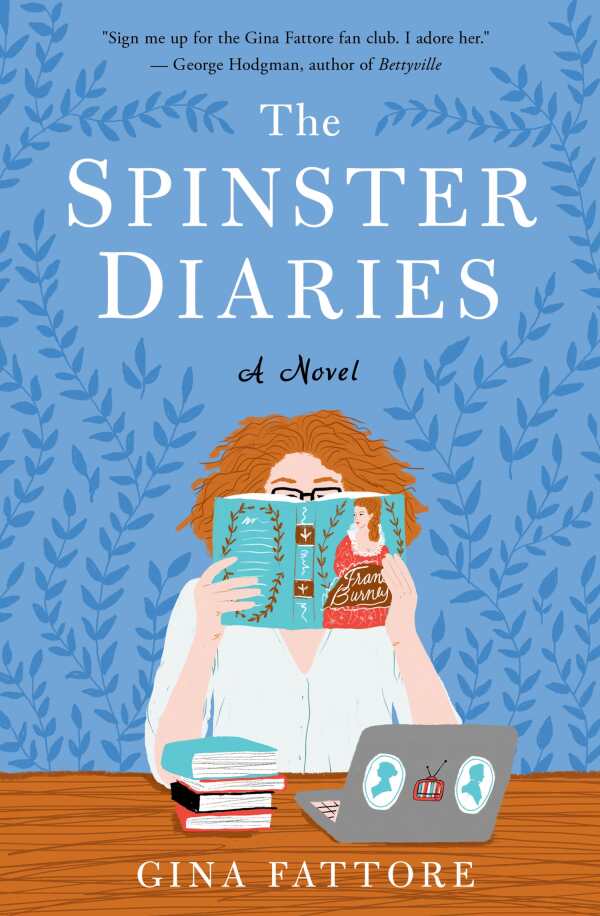The Spinster Diaries
In Gina Fattore’s (un)romantic comedy, The Spinster Diaries, a Hollywood writer who shares the author’s name discovers that she’s ill.
The novel’s Gina is an unemployed television producer when a cyst that’s pressing on her frontal lobe is found. She’s hired to write for a show, where she can’t decide if her coworkers, dubbed the “shoe girls,” are friends or foes; she develops a crush on her engaged assistant, Dave. In her spare time, she works on a six-part miniseries about the eighteenth-century novelist credited with founding chick lit, Fanny Burney; that project carries her through her troubling times.
Organized by dated chapters, one per month, the book mimics a journal. Its plot is diffuse, following Gina’s feelings, anxieties, hopes, and dreams more than the particulars of her career. Dense with “you know”s and “whatever”s, her writing is wordy for the medium, though her frequent references to movies and television shows are jocular. Bits of script are inserted into the text to emphasize Gina’s unease with life outside of work; she’s more at home in the stories that she crafts, which are enlivened by self-coined terms and phrases, like GirlWorld and Journaling for Anxiety.
Gina’s story develops in tandem with Fanny’s. Both adopt The Spinster Way, prioritizing writing over the typical feminine protocol of marriage and children. Their relationships with their sisters highlight the importance of women’s friendships, while their resilience and humor are dominant and infectious. Fanny inspires Gina to maintain hope in the face of death, even as she herself outlives everyone she loves. The ending is unexpected and delightful.
Paying homage to women who self-actualize through their art, The Spinster Diaries focuses on two women separated by time who live out their beliefs.
Reviewed by
Mari Carlson
Disclosure: This article is not an endorsement, but a review. The publisher of this book provided free copies of the book to have their book reviewed by a professional reviewer. No fee was paid by the publisher for this review. Foreword Reviews only recommends books that we love. Foreword Magazine, Inc. is disclosing this in accordance with the Federal Trade Commission’s 16 CFR, Part 255.

